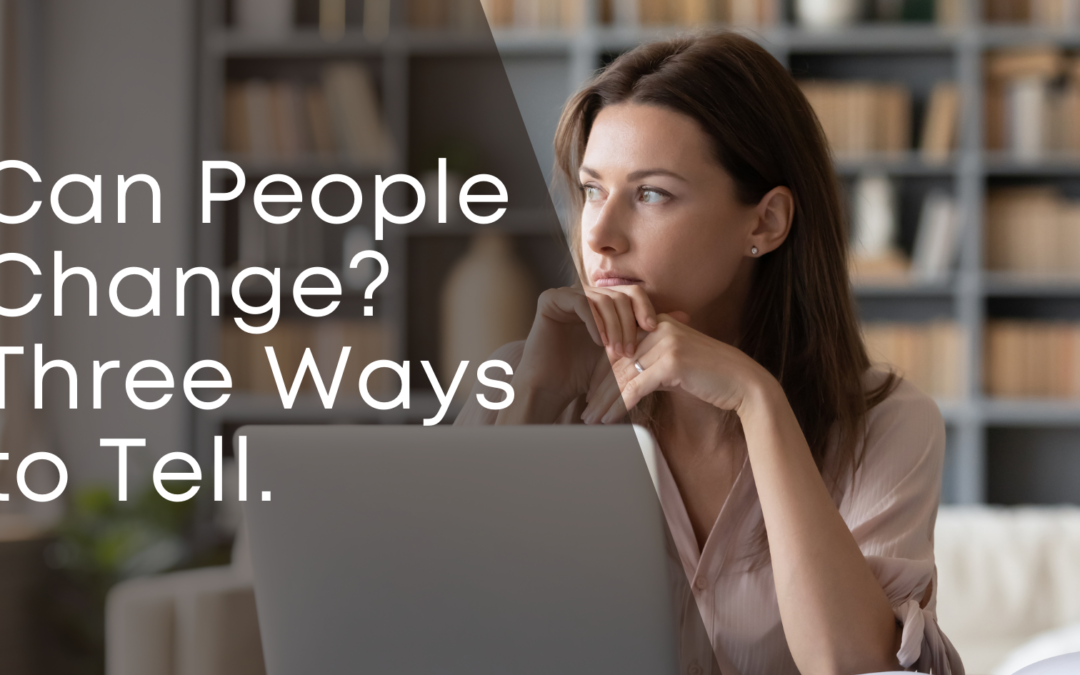“Can people really change?” This question haunts many of us as we deal with siblings, spouses, or friends who seem stuck in harmful patterns. We yearn for them to see how their actions are causing pain – to us, to children, and to those around them. My name is Steven Unruh, and as a psychotherapist and divorce mediator with over 35 years of experience, this question is one that I hear all too often.
The Journey Towards Change
Change is a complex process. It’s not just about altering behavior, but also about gaining insight and nurturing a desire to be different.
1. Are They Changing?
The first step to answering “can people change?” involves assessing whether the person is currently in the process of change. Are they taking active steps towards self-improvement? This could mean joining self-help groups, starting therapy, or actively working on their issues. If they’re not making efforts to learn about themselves and adjust their behavior, it’s a strong indication that they might not be ready or willing to change.
2. Do They Have Insight?
The second component to consider is insight. It’s a key factor in the potential for change. Henry Cloud, in his book Changes that Heal, emphasizes that some people lack the ability for self-insight. It’s a hard fact to accept, but not everyone has the same capacity for self-awareness and emotional intelligence. Unless they can recognize how their behavior is hurting others, they can’t initiate necessary changes.
3. Do They Want to Change?
Lastly, they need to want to change. Even if you wish for someone to change, the decision and motivation must come from within them. Unfortunately, many people are comfortable with their lives and behaviors, seeing no need to change. You can’t convince someone to change – they must desire it for themselves.
Embracing Your Own Change
When we don’t see the change we hope for in others, sometimes the best course of action is to initiate changes for ourselves. These adjustments can help us protect our own well-being, ensuring we’re not controlled by the behavior of others.
Change is a deeply personal journey, one that requires active effort, insight, and a genuine desire. It can be frustrating and heart-wrenching when we don’t see the change we hope for in others. However, it’s crucial to remember that we can’t force someone to change. They must want it for themselves. But we can control our own actions and responses, choosing to protect ourselves and create healthier environments.
What’s Next?
I’d like to take a second to talk to anyone who is in the midst of a divorce. You are standing in the middle of your life gazing at the person you once vowed to spend forever with, but now you’re not so sure. This person, who was once your partner, seems to be walking a completely different path. After reading this blog, you must decide for yourself if they are changing, have the insight to change, or even if they want to change at all.
If you’re dealing with a partner who isn’t showing signs of change, and you’ve exhausted all other avenues, it’s time to take action for yourself. Protect your emotional well-being and create a healthier environment for your children. Explore divorce mediation as a way to gain control over your situation.
Whether you’re already in the midst of a divorce or are questioning someone else’s ability to change, remember, your needs and feelings are important too. It’s time to put yourself first, and I’m here to help.
Visit my website or get in touch directly to learn more about how I can support you through this challenging transition. Let’s create a positive change together. After all, change starts from within.
Steven Unruh


Recent Comments